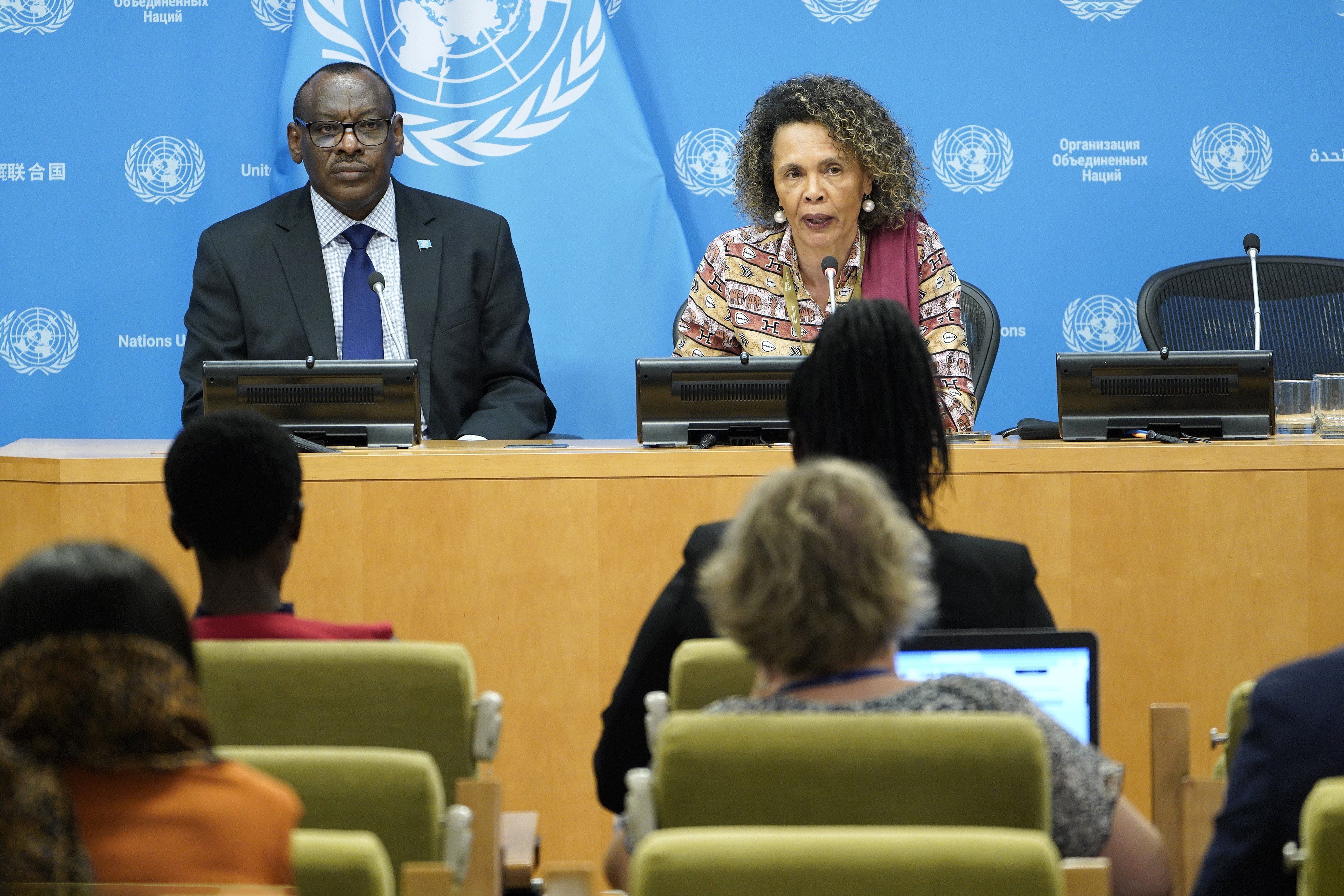August 13, 2024
“We cannot accept that the world’s preeminent peace and security body lacks a permanent voice for a continent of well over a billion people — a young and rapidly growing population — making up 28 percent of the membership of the United Nations.” So said UN Secretary-General Antonio Guterres on Monday as he endorsed the idea of an African delegation becoming a permanent member of the UN Security Council.
Guterres offered few specifics on how Africa should be represented. That appears to be a question for the African Union. For now, the 15-member Security Council consists of five permanent members with veto power – China, France, Russia, the US, and the UK – and 10 nonpermanent seats allocated regionally, including three seats for African states, two for Asia-Pacific, two for Latin America and the Caribbean, two for Western Europe and other states; and one for Eastern Europe.
UNSC permanent members have a veto over votes of the Council. Sierra Leone President Julius Maada Bio told the Council on Monday that Africa should have two permanent seats and added that “Africa wants theveto abolished. However, if UN member states wish to retain the veto, it must be extended to all new permanent members as a matter of justice.”
Guterres said in January that all five current permanent members favored greater African representation, though they will certainly haggle over the details of reform. But for now, the number of voices in favor, at least in principle, continues to grow.More For You
People in support of former South Korean President Yoon Suk Yeol rally near Seoul Central District Court in Seoul on Feb. 19, 2026. The court sentenced him to life imprisonment the same day for leading an insurrection with his short-lived declaration of martial law in December 2024.
Kyodo
65: The age of former South Korean President Yoon Suk Yeol, who was sentenced to life in prison on Thursday after being found guilty of plotting an insurrection when he declared martial law in 2024.
Most Popular
In an era when geopolitics can feel overwhelming and remote, sometimes the best messengers are made of felt and foam.
Hungarian Prime Minister Viktor Orban holds an international press conference in Budapest, Hungary, January 5, 2026.
REUTERS/Bernadett Szabo/File Photo
The Hungarian election is off to the races, and nationalist Prime Minister Viktor Orbán is facing his most serious challenger in 16 years.
How people in G7 and BRICS countries think their policies will effect future generations.
Eileen Zhang
Does skepticism rule the day in politics? Public opinion data collected as part of the Munich Security Conference’s annual report found that large shares of respondents in G7 and several BRICS countries believed their governments’ policies would leave future generations worse off.
© 2025 GZERO Media. All Rights Reserved | A Eurasia Group media company.
